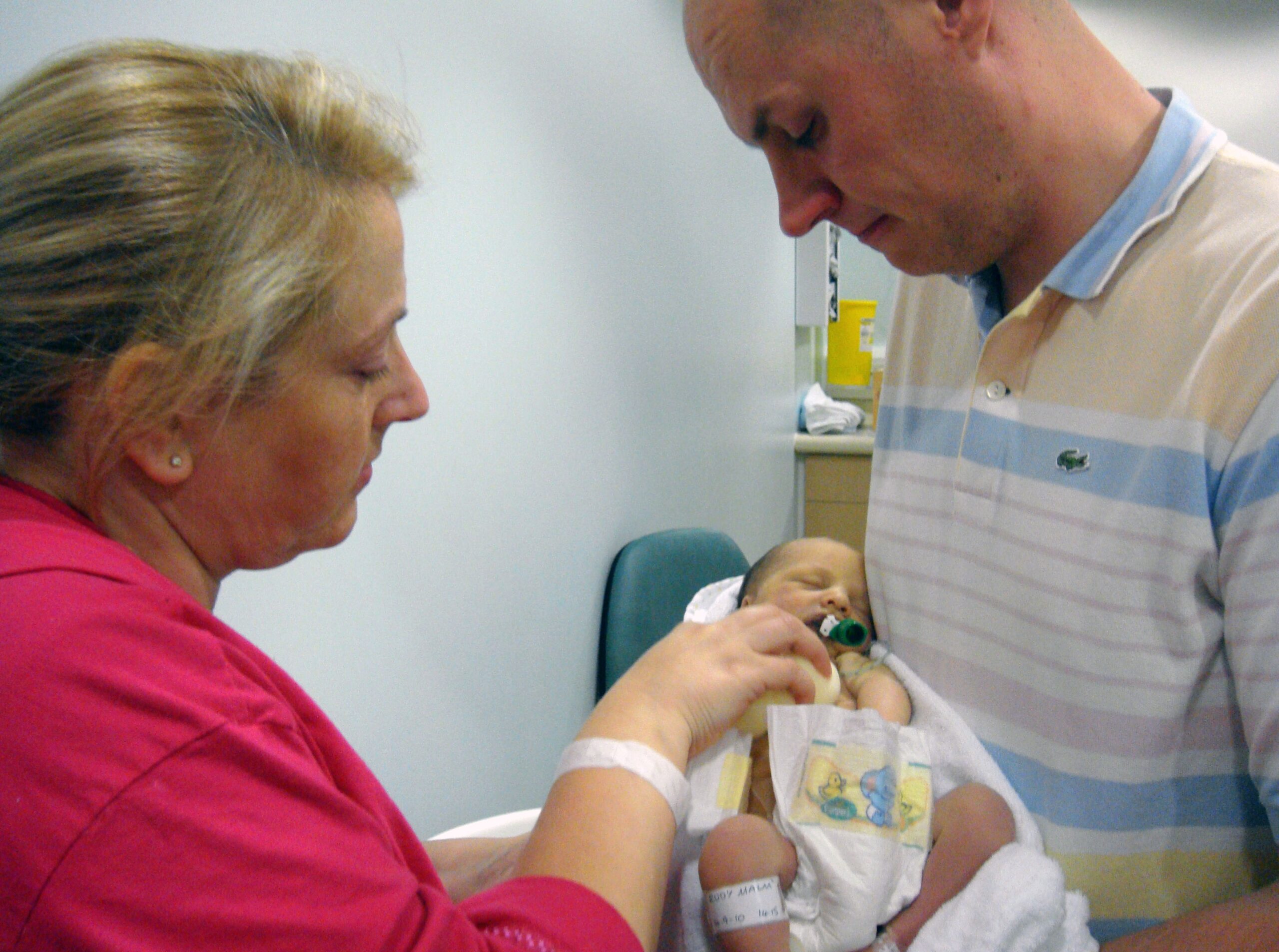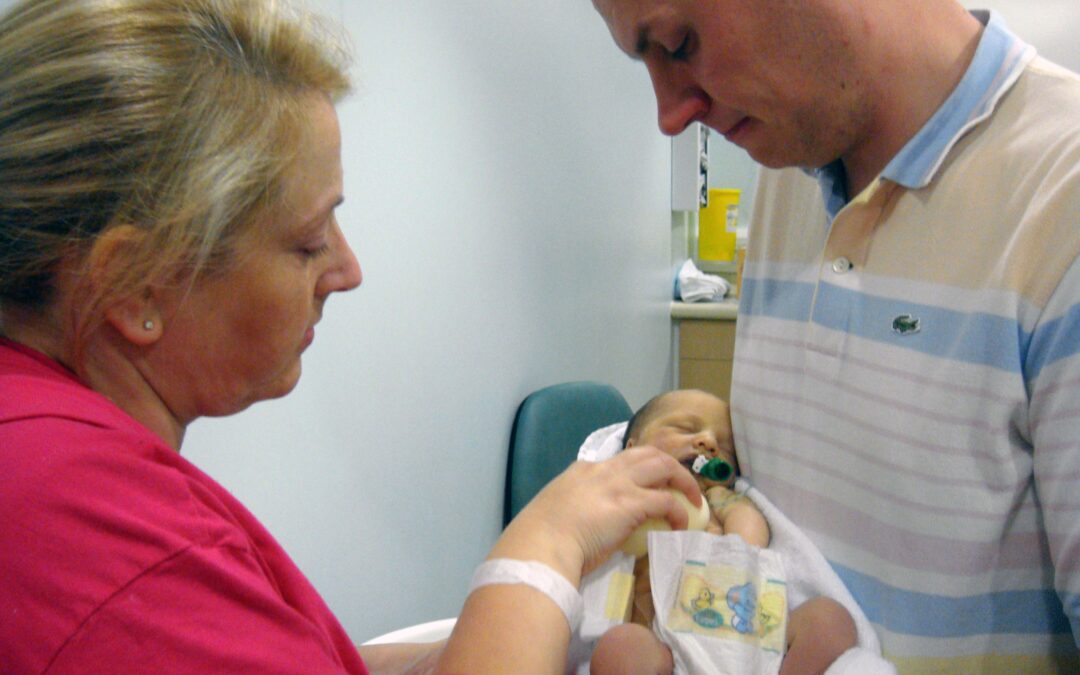
Sarah and Andrew Malm went through a hospital review process in 2010 following the death of their son Rudy, pictured, who died shortly after birth.
by Charlotte Bevan, Senior Research and Prevention Advisor at Sands, the stillbirth and neonatal death charity.
A newborn baby dies every 6 hours in the UK. More children die within the first 28 days than at any other time of childhood. Neonatal deaths, therefore, make up the greatest burden of not only infant, but also child mortality in England.
Understanding why children die in the early days of life is vital to target improvements to care for women and families, which might save future lives. The root cause of the child’s death may be something that occurred during pregnancy or birth, and an intervention might have changed the outcome. Hospital review processes such as the Perinatal Mortality Review Tool (PMRT) help us to get a clearer picture of what happened in every case and generate new information that can lead to learning and change for future families.
New work we’ve published at Sands shows that parents aren’t always included in the hospital review process – and when they are, their experiences are sometimes negative. This is important, not only because their future wellbeing is partly dependent on processing their child’s death, but also because their contribution to the review process, as the parents at the centre of their baby’s care, offers a unique perspective that may not be recorded in the clinical notes.
In their own words
Sands has been providing support for parents affected by this type of child loss for over 40 years. I personally am intimately familiar with the impact such a death has: my own daughter Hope died within 30 mins of being born by emergency C-section, a tragedy that might have been prevented with better care. Today she would have been 20 years old, had she lived.
Our new report In their own words captures the experiences of 278 bereaved parents who have experienced the death of a baby before, during or shortly after birth in the last two to three years. Among the responses to our survey we found a spectrum of experiences, with parents expressing – in emotive language at times – both good and bad care in communications around review.
Forty-three parents in our survey lost a baby within the first month in England. Three in 10 of those parents were not even told about the review process. Among parents who were told, 1 in 10 weren’t offered the chance to contribute to the review process by sharing their concerns or questions.
One mother commented: “The review was held behind closed doors, I was not invited to be involved or given the opportunity to express my views or tell mine or my daughter’s story. My husband was barely acknowledged. We were simply invited to a reading of the review. None of our questions have been answered to this day.”
The survey found that parents who are not told about the review, or who are given inaccurate information and have to chase hospitals for updates on the review’s progress, are more likely to be left with unresolved issues and feelings of abandonment and distrust – not just in hospital staff but in the whole process itself.
Putting parents at the heart of the review
Such cases represent missed opportunities for both parents and professionals – missed opportunities to process loss and missed opportunities to build knowledge and improve practice. Importantly, some of the responses we received show that the majority of parents want to be involved in the review process. For these parents the review not only reassures them that their child’s death is taken seriously but gives them an opportunity to clarify the narrative of their child’s short life. One mother said: “We had a really positive meeting with the consultant who delivered our son… We received a letter which summarised the meeting and it said the hospital would undertake a review. We did not receive anything further… I would have liked to have seen what was said at the review – not because I was concerned about our care but because I have very little of anything relating to [my son] and any document about him is a comfort to me. It is evidence he existed, even for just a few days.”
A chance for change
It’s difficult to overstate how profound a difference the review process can make for parents. It’s illustrated by the words of these two parents:
“The hospital was brilliant and we were given lots of opportunities to ask questions. Even now, almost five whole months on, we feel we could call them to talk about things again.”
“The review actually caused myself huge anxiety and upset, I didn’t want my baby’s name brought up again in clinical circumstances as I wanted to remember her with love and not as a ‘case review’ or ‘statistic’.”
For professionals, putting parents at the heart of hospital review processes in a meaningful, compassionate and sensitive way is an opportunity to ensure that all experiences are as positive as they can be and do not result in further psychosocial harm to parents. It is a chance too, to contribute better and more complete information for future learning that may save lives.
You can read more about what we found and what parents said, as well as recommendations around improving engagement with parents, on our website.

